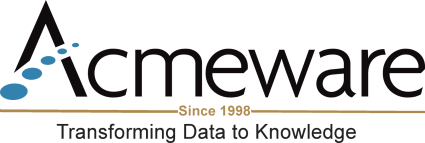I often find myself having the same conversation with folks about the health of the data in MEDITECH’S Data Repository (DR). I remind them that if they use the DR for reporting, but don’t have a process to maintain data health and accuracy, then they shouldn’t be using DR. Keeping DR data healthy is easy, it’s just a matter of knowing what to do and when to do it.
The Centers for Medicare and Medicaid Services (CMS) and The Joint Commission (TJC) have quality reporting programs for Inpatient Psychiatric Facilities (IPFs).
CMS recently published the FY 2023 Inpatient Psychiatric Facilities Prospective Payment System (IPF PPS) Final Rule which updated the prospective payment rates for Medicare inpatient hospital services provided by Inpatient Psychiatric Facilities (IPF), which include psychiatric hospitals and psychiatric units of an acute care hospital or critical access hospital excluded from the Inpatient Prospective Payment System (IPPS).
CMS recently published the FY 2023 Inpatient Prospective Payment System (IPPS) Final Rule which includes several changes to the Hospital Inpatient Quality Reporting (IQR) Program and Medicare Promoting Interoperability Program for eligible hospitals and critical access hospitals (CAHs). For the full text of the rule, see the Federal Register.
CMS recently released the CY 2023 OPPS Proposed Rule, which included proposals for the Hospital Outpatient Quality Reporting Program (OQR) Program. For the full text of the rule, see the Federal Register.
CMS recently published the CY 2023 Quality Payment Program (QPP) Proposed Rule which included numerous proposed updates to MIPS Value Pathways (MVPs) and Merit-based Incentive Payment System (MIPS). For the full text of the rule, see the Federal Register.
CMS recently published the FY 2023 Inpatient Prospective Payment System (IPPS) Proposed Rule which includes several proposed changes to the Hospital Inpatient Quality Reporting (IQR) Program and Medicare Promoting Interoperability Program for eligible hospitals and critical access hospitals (CAHs). For the full text of the rule, see the Federal Register.
The ability to scan a patient record into the system greatly improves workflow and reduces errors. Did you know that it's easy to use barcodes on reports from Data Repository?
How do I know it's right?
One of the challenges in writing reports from MEDITECH Data Repository (or any system for that matter) is knowing for certain that you got it right. That not only means the data are accurate, but the person requesting the report is satisfied with the result too.
Electronic Case Reporting (eCR) enables automatic, real-time exchange of case information with Public Health Agencies (PHAs).
When data is recorded in the EHR, it is checked against a trigger table to determine whether there is a reportable condition — and if so, an electronic Initial Case Report (eICR) is sent to the PHAs.
Power BI is the latest enterprise business intelligence platform from Microsoft. With Power BI's beautiful and dynamic data visualization tools, unlock the informatics potential of MEDITECH Data Repository in ways not before possible.
In our first Power BI blog, we introduced the Power BI platform and reviewed the desktop applications and cloud-based tools we can use to develop and share reports and dashboards. In this blog, we’ll look more specifically at the ins and outs of using Power BI with MEDITECH Data Repository.



